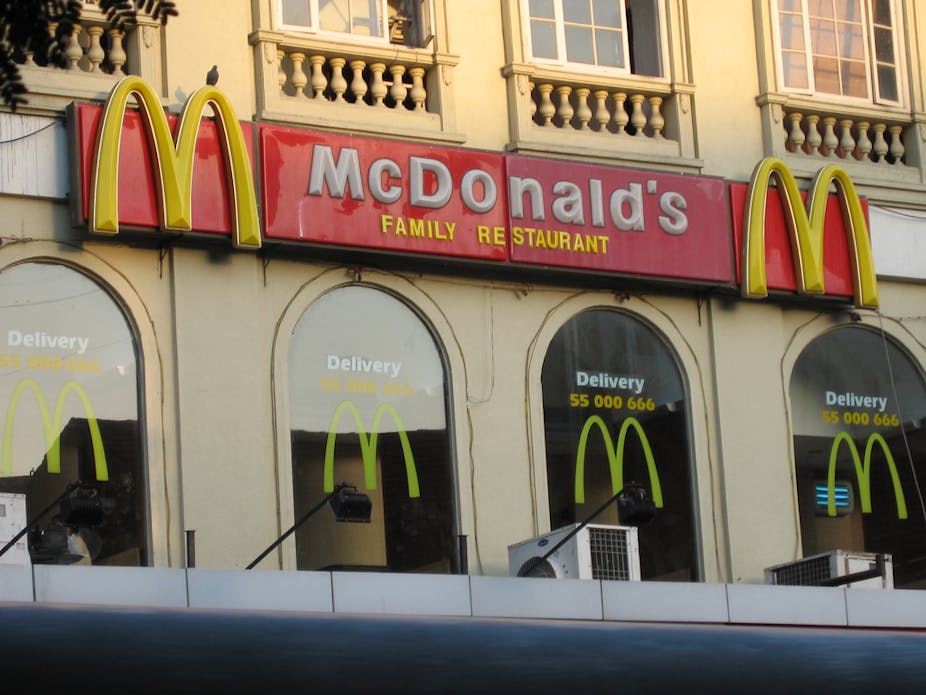Revelations an Adelaide woman, Jessica Wishart, is suing a McDonald’s franchise for scalds she received from coffee purchased at the restaurant have provoked outrage in the media, and inevitable comparisons with the American case of Stella Liebeck.
These comparisons have been accompanied by calls for law reform, and commentary ridiculing the plaintiff for making such a frivolous claim - accusations frequently directed against Liebeck.
Liebeck became one of the urban legends of tort law after she was awarded US$2.9 million for burns she received from a spilt McDonald’s coffee over 20 years ago. The case has been frequently used as a rallying point for critics of the negligence regimes in Australia and elsewhere.
But as with many urban legends, the Liebeck decision is frequently misunderstood. There are many reasons why we shouldn’t panic and assume the Liebeck decision is likely to influence an Australian court in the event it considers the current claim.
First, in the US, negligence claims are often heard by a jury. A jury of peers - everyday people - were the ones who decided to award Stella Liebeck damages. In Australia, negligence claims are decided by a judge.
Secondly, of the $2.9 million originally awarded, $2.7 million were punitive - damages intended to punish the defendant, McDonald’s - for their conduct, rather than directly compensate the plaintiff for harm suffered.
The jury took exception to the fact McDonald’s had received hundreds of complaints from consumers who had suffered burns previously, and refused to respond. Also, the plaintiff offered to settle her claim early on, seeking compensation for medical expenses alone- about $10,500. McDonald’s declined her offer to settle and dragged the matter out to litigation.
Punitive damages are not available in Australia in negligence claims. However it is interesting to note that so much of the undeniably large payout awarded by the jury - 257 times what the plaintiff originally sought - is attributable to the fact the jury didn’t like the way McDonald’s ran its business, including its litigation. Food for thought. And of the compensatory damages awarded, a 20% discount was applied on the basis of contributory negligence by the plaintiff.
Thirdly, the trial judge reduced the jury’s award of damages to $640,000, and the parties then settled before an appeal against the decision was heard. The settlement figure was confidential, as they usually are, but it’s a fair bet that it was still more than the $10,500 in medical expenses the plaintiff originally sought.
Similar claims have been heard since Liebeck, both in the US and in other jurisdictions, and have met with mixed results. In the UK case of Bogle and Ors v McDonald’s Restaurants Limited, the UK High Court considered claims brought by a group of 36 plaintiffs - mostly children - who had suffered personal injury caused by the spilling of hot drinks served by McDonald’s restaurants while in the restaurant, as opposed to this happening in a drive-through, as with Liebeck’s claim.
The Court stated that “Persons generally expect tea or coffee purchased to be consumed on the premises to be hot… persons generally know that if a hot drink is spilled on someone, a serious scalding injury can result” and found that McDonald’s was not liable. Similar decisions have been reached in other cases in other jurisdictions, including the US.
What this demonstrates is that courts decide each case on its facts, and, at the present time, the facts of the Wishart case have not been established. Jessica Wishart may have a legitimate claim against McDonald’s, or she may not. Extensive media discussion, and clamouring for torts reform, does not assist the legal process in determining what the facts of her particular claim are, and establishing whether her claim should be upheld.
Australian torts law has already undergone extensive reform in response to perceptions that we are becoming increasingly litigious.
Independent research doesn’t support that belief, and, attention-grabbing headlines to the contrary, the legal system we have generally does a pretty good job of balancing the interests of plaintiffs and defendants.
So rather than reaching for the panic button and declaring that Jessica Wishart’s claim is proof that the sky is falling, we should all take a deep breath and a cold shower - or have a nice warm cup of coffee - and let the legal system do its job.

